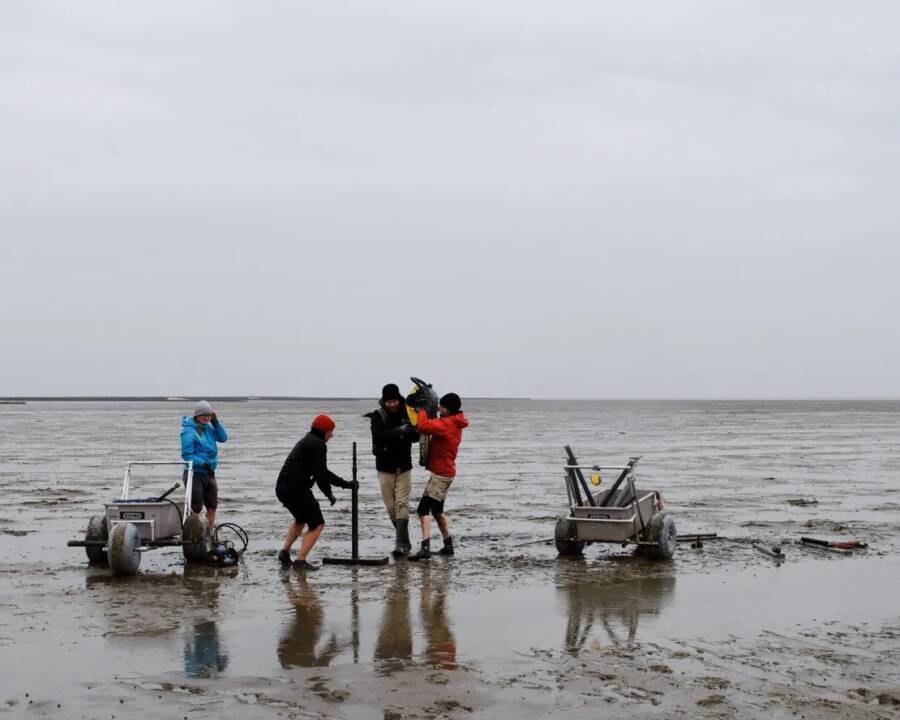The Sunken City Of Rungholt, The ‘Atlantis Of The North Sea’

Justus LemmResearchers recovering artifacts believed to have come from the lost medieval town of Rungholt.
In 1362, if the legends are to be believed, the Germanic town of Rungholt vanished into the sea as a punishment for its sins. While the tale shares much in common with the legend of Atlantis, there is one key difference: Researchers may have actually found Rungholt.
In June 2023, a press release from Kiel University in Germany announced that archaeologists had located a chain of manmade mounds near Hallig Südfall, a small island in the Wadden Sea off the coast of northern Germany. One of them purportedly contained the foundations of a church.
Researchers claimed that the discovery served as evidence that Rungholt did indeed exist. Some suggested that it may have been a highly prosperous and important port town in North Frisia flush with taverns and brothels.
The town became known for debauchery and sin. As the story goes, one night in 1362, a group of drunk young men forced a priest to give last rites to a pig at one of the local inns. The next day, the priest allegedly prayed for the young men to be punished — and a storm tide promptly swallowed Rungholt.
Historical records do indeed show that a massive storm ravaged Europe in January 1362, causing severe damage to many coastal towns. Perhaps, after all these years, the underwater city of Rungholt really has been found.





